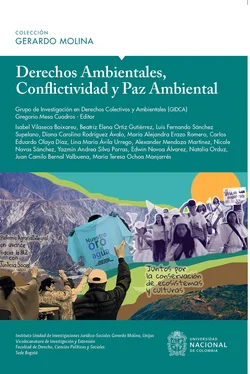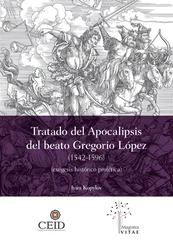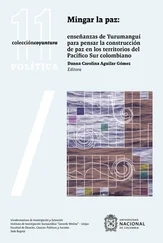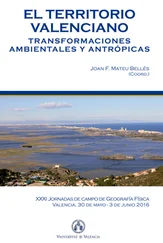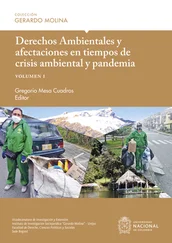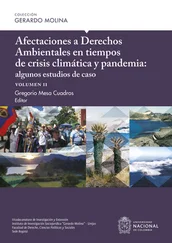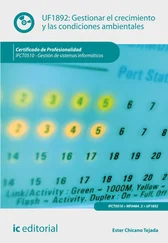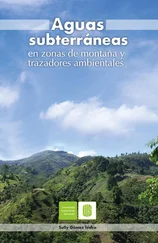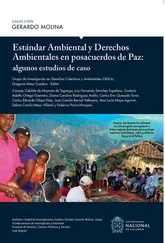In the last twenty years, and on the occasion of the predominance of the neo-extractivist postulates based on appropriation by dispossession (Harvey, 2003), the neoliberal version of capitalism has promoted in Colombia and Latin America a way to take advantage of the comparative and competitive benefits of producing raw materials. In the idea that greater exchange will generate more progress and development, developing countries allow developed States to transform the raw materials and then sell the final products to developing countries.
This vision significantly increased the number of natural elements extracted in our territories: minerals, hydrocarbons, biological diversity, water, soils that generates negative environmental impacts. This translates into a reduction of diversity, erosion, pollution inadequate disposition of materials and waste, exaggerated and useless transportation, production of disposables and the increase of consumerism.
Some legal bases for the resolution of the environmental conflict in Colombia and Latin America
From our perspective, we consider that there is an environmental vision that is an essential part of the conflict, in the sense that there is a binding interaction of social and natural elements. Therefore, we should not focus exclusively on the forms of appropriation, domination and transformation of nature, but also on the various political, social and cultural factors that occur among cultures that, in multiple circumstances, try to impose their lifestyles against other peoples and societies.
Given the emergence and development of environmental conflict, environmental law and justice should guide a re-distributive approach as one of the possibilities of handling environmental conflicts. From the perspective of political environmentalism, a concept that we have built from the idea of mobilization in defense of the ecosystems and the cultures that inhabit them, we seek to defend the environment for present and future generations of human beings and other beings of nature.
Political environmentalism has in “popular environmentalism” one of its main expressions of action in defense of nature and cultures. It is the set of legal actions and social and cultural policies that enable ethnic groups, communities and societies to defend against the attacks and negative impacts that projects by national and transnational companies with the support of their States cause to their lives, territories, resources and the environment in general.
From our point of view, these affected societies and communities are victims of environmental injustices and attacks on the sources of material and spiritual sustenance due to the misappropriation of their environment by other cultures. Therefore, they develop resistance movements in the defense of their environment, its territory and its culture associated with its own way of living.
Generally, in Latin America and particularly in Colombia the main projects or activities that originate the environmental conflict have to do with extraction of minerals and hydrocarbons for the domestic and global market. For example, we have coal extraction in Cerrejón, Guajira by Intercor Inc.; nickel in Cerromatoso, Córdoba by BHP Billiton; gold in Santurbán and in La Colosa by Eco Gold Co. and Anglo Gold Ashanti; and oil in Boyacá, Santander, Putumayo, Meta, Casanare or Arauca by Occidental Inc. or BP. In addition, there are also infrastructure works for the access and transportation of new raw materials and goods for national and global markets, such as roads and highways, airports and ports, hydroelectric and thermoelectric projects such as Urrá, El Quimbo, Hidrosogamoso or Hidroituango. These projects respond to the new demands of increasingly urbanized and industrialized societies, generating the exaggerated decline and destruction of biological diversity for agrofuel projects, access to genetic resources or fumigation to illicit crops; water and soil appropriation and forest destruction for agroindustrial monocultures of oil palm, soybean, sugar cane, cotton or livestock for export meat.
For all the above, we are in favor of a conceptualization and grounding of conflict in an environmental perspective in a strict sense, where the ethical, ideological, philosophical, cultural and material dimensions are relevant for its analysis. Additionally, this conceptualization must be explained not only through the relations of power or through the modern rational project of the West since the positions assumed by the actors in environmental conflicts transcend these reductionist approaches. An aspect that can be evidenced, for example, in the case of Colombia, are the cultural forms of traditional societies that express themselves beyond the rationalist and materialist dynamics of Western domination, transformation and exploitation of Nature.
Against this damage and deterioration caused by the new wave of extraction of elements, and affectations to the social and cultural practices of peoples and communities in Colombia and most of the Latin American countries, people from different origins, groups and organizations have united in a series of popular social mobilizations to define collective actions in defense of collective goods and in the pursuit of the public interest in general.
A good part of their proposals aims at defending the little cultural and natural heritage that is still preserved in the country; others seek to defend the territories, some ecosystems or the environment in general, under the idea of a sense of commonality, that needs to be taken care of and preserved.
Sometimes, Environmental Law can contribute to this defense, since some mechanisms of citizen participation in environmental matters such as, green meetings, public environmental hearings, popular environmental consultations, prior consultations with free and informed consent, as well as environmental assessments have sometimes yielded some positive results (Mesa Cuadros, 2015b). For example, the popular environmental consultations in the municipalities of Cajamarca and Piedras, Tolima, for the defense of the waters and forests of the region against the extraction of gold by Anglo Gold Ashanti, or the consultation in Villanueva, Casanare, in procure of water and soil protection against oil extraction by British Petroleum and Ecopetrol, the Colombian state oil company.
In any case, many of these legal demands have resulted in lawsuits (protection actions or environmental protection, popular environmental actions, class actions or group in environmental matters, nullity actions and reestablishment of law, among others), for the political and legal recognition of those peoples, communities and organizations that have not been considered when planning development outside of the environmental considerations established by the Colombian law. Colombian environmental standards include the Political Constitution of Colombia of 1991, Ley 99 de 1993 (General Environmental Law), Decreto 2811 de 1974 (Code of Natural Resources), Ley 2 de 1959 on protection of natural forests, among others.
Despite the existence of international treaties and environmental conventions (Climate Change, Biodiversity, Biotechnology) and international declarations on development and environmental protection (United Nations, 1972; 1992; 2012), its implementation suffers from a commitment deficit from both States and the international community for their effectiveness and concrete application. They continue to give priority to chrematistic values for the unlimited appropriation of nature, which usually starts by ignoring the biophysical limits of the environment, mainly with its ecosystems.
However, we need to recognize their symbolic role in proposing and guiding the discussions in the national, regional and global levels regarding the need to incorporate the environmental dimension in development planning as a limit to the productive processes that degrade and pollute the environment. Even so, international and national environmental laws are partially applied from certain specific subjects and territories (the global North), against specific populations and ecosystems (the global South).
Читать дальше
